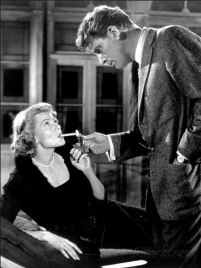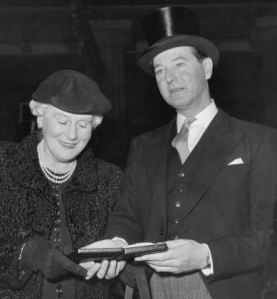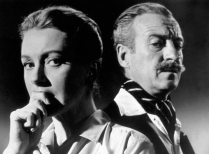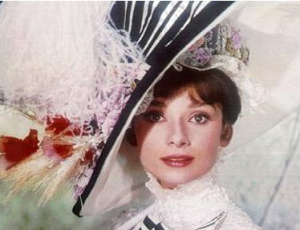…or heterophobic, for that matter. But when I encounter an artist whose sexuality seems to actually be a handicap in his work, I see no reason to remain silent. This is as true of Anaïs Nin, Armistead Maupin, and the Marquis de Sade as it is of Sir Terrence Rattigan.
The prolific British playwright kept his homosexuality a secret, as he had to in England until 1967, when it was decriminalized. But his sexuality exhibits itself openly in his work, or so it seems to me. His plays are markedly skewed toward a male point of view (The Browning Version, The Winslow Boy, Adventure Story, etc.), so much so that, ultimately, I don’t believe he understood women any better than he did cats or cows. I don’t think he even realized that women are every bit as complex as men. (He’s not alone. That’s true of a number of writers, including John Updike. And no doubt it’s true of women writers.)
I’ll get to the most recent film adaptation of his work, which prompted me to write this, after addressing the most famous one, which is undoubtedly Separate Tables (1958). It won two of the seven Oscars for which it was nominated, but today it feels like a museum piece in an exhibit about British repression. It has six or seven female roles, not one of them a credible woman. The cast— David Niven, Deborah Kerr, Wendy Hiller (all Oscar nominees; Niven a winner), Burt Lancaster, Rita Hayworth, Cathleen Nesbitt, Gladys Cooper— is as faultless as the boredom is relentless.
That is largely the fault of the director, Delbert Mann, whose mediocre career is summarized for all in his NYTimes obit, so allow me a paragraph to dismantle him. Mann won an Oscar for directing Marty in 1956, a movie I will see again only if Hell exists. That Paddy Chayevsky melodrama premiered on television, and Mann was a made-for-television director. My favorite review of the film version includes this: “No movie can be entirely worthless, it can always serve as a bad example, and this is the worst example of a Best Picture winner I know of.” Mann was drawn to stagey dramas (Dear Heart, Desire Under the Elms, etc.) about sentimental characters, often ones who are lonely for good and obvious reasons. Separate Tables is like Marty, but relocated from a Bronx butcher shop to a Bournemouth holiday hotel, and featuring thinner, older, wealthier characters. But enough about the lousy director. Back to the veiled playwright:

Sexual strings attached
Typical of Rattigan, the male characters in Separate Tables are reasonably well-developed, which is not to say that they ring true. Oscar-winner David Niven, for instance, plays Pee Wee Herman — no, that’s not right. But it’s not far off. He plays Major Angus Pollack, who fabricates stories about his military prowess when he isn’t jerking off in movie theaters. Burt Lancaster, virile and vigorous as ever, plays an alcoholic, divorced writer, and he is given all the witty lines, which are few in number and they dry up early. He is betrothed to hotelier Wendy Hiller, an engagement that hits the skids when Rita Hayworth, as his ex-wife, shows up with strings she plans to re-attach to his limbs… Continue reading






